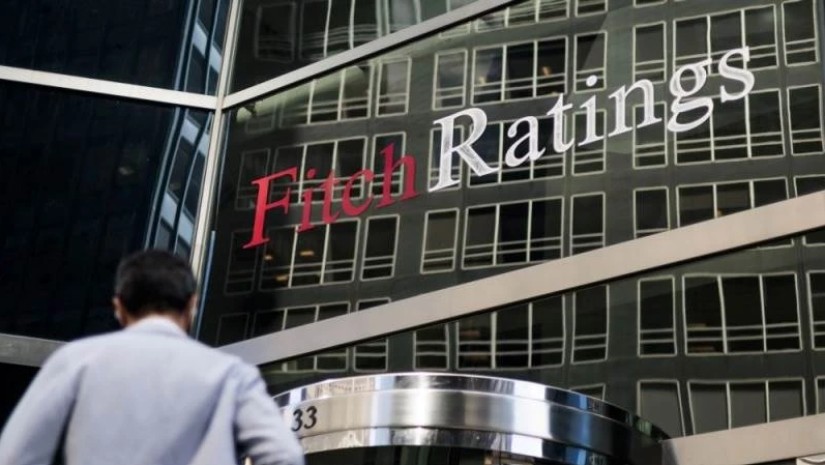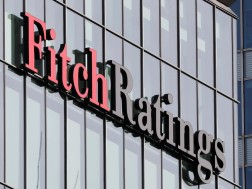Fitch Ratings has affirmed Armenia's Long-Term Foreign-Currency Issuer Default Rating (IDR) at "BB-" with a Stable Outlook. This affirmation reflects Armenia's credit fundamentals, including its per-capita income and governance indicators, strong growth prospects, and robust macroeconomic policy framework. However, challenges such as a wide fiscal deficit, weak external finances, high financial sector dollarization, and geopolitical risks are noted.
Geopolitical Risks:
Armenia is negotiating a peace agreement with Azerbaijan following its loss of control over Nagorno-Karabakh in 2023. Fitch anticipates that a comprehensive peace agreement will be difficult to achieve due to Azerbaijan's demands for a transit corridor through Armenian territory and constitutional changes, which are politically contentious. Despite the ongoing presence of Azerbaijani troops in Armenia and occasional exchanges of fire, Fitch's base case does not foresee an escalation of the conflict.
Relations with Russia have deteriorated, with Armenia suspending its participation in the Russia-led Collective Security Treaty Organisation and engaging in military exercises with the US. However, trade links with Russia remain strong, and Armenia's dependence on Russian energy is significant. Fitch does not expect secondary sanctions from the US, UK, or EU on Armenia, anticipating that Armenia's financial sector will comply with sanctions targeting Russia.
Continued High Growth:
Armenia's economic growth benefits from strong inward migration from Russia, Belarus, Ukraine, and Nagorno-Karabakh. Real GDP grew by 8.7% in 2023 and maintained strong growth at 9.2% year-on-year in the first quarter of 2024. The tourism and information and communication technology sectors are expected to drive growth, with the Amulsar gold mine's operations commencing in 2025 positively impacting exports and growth. Fitch projects growth to reach 6% in 2024, 5.5% in 2025, and 5.1% in 2026.
Fiscal Expansion:
Armenian authorities have increased expenditures to meet the needs of the refugee population and on defense and other capital expenditure projects. Consequently, Fitch expects the general government deficit to widen to 4.5% of GDP in 2024 (from 1.9% in 2023, compared to the current 'BB' median of 2.6%). The introduction of a universal healthcare system in 2025 will add further expenditure pressures, increasing the deficit to a projected 5.4% of GDP. The deficit is expected to moderate to 4.2% of GDP in 2026 as refugee-related expenses decrease and new taxes boost revenue.
Rising Debt and High FX Risk:
Fitch expects wider deficits to increase general government debt/GDP to 48.7% by the end of 2024 from 48.1% in 2023, stabilizing at 50.5% by 2026. While this is higher than previously projected, it remains below the 'BB' median of 55.2%. Fitch anticipates that Armenian authorities will refinance a USD 313 million Eurobond maturing in the first half of 2025 in international markets and secure larger financing requirements with support from official creditors and the local market. Currency risk is a significant medium-term risk to debt dynamics, with 53% of debt being foreign-currency-denominated as of May 2024.
Weakening External Finances:
Fitch expects the current account deficit (CAD) to widen to 4.3% of GDP in 2024 and 4.5% in 2025, from 2.1% in 2023, due to fiscal loosening, significant capital expenditure, and strong domestic consumption. The large influx of remittances and other money transfers from migrants seen in 2021-22 is not expected to be repeated, although a meaningful outflow is also not anticipated. Foreign-currency reserves stood at USD 3.3 billion as of June 2024, below the August 2023 peak of USD 4.2 billion. This is equivalent to 2.8 months of projected current external payments, below the 'BB' median of 4.5 months, although Armenia's flexible exchange rate serves as a buffer to shocks.
Banking Sector Dollarisation:
The banking sector in Armenia is marked by relatively high dollarization, though deposit dollarization fell by 4.6 percentage points from end-2022 to 50.4% as of May 2024. Loan dollarization remains stable at around 34%, despite the Central Bank of Armenia phasing out new foreign-currency mortgages in 2023. Banks have adequate dram and foreign-currency liquidity, strong asset quality, high capitalization, and good profitability as of May 2024.
Low but Rising Inflation:
Armenia emerged from six months of deflation in May 2024, with prices growing by 0.3% year-on-year and further to 0.8% in June. Fitch expects inflation to rise to 1.3% by year-end (with a 2024 average of 0.3%) and reach the 4% target in 2026, given the expectation of dram depreciation. Authorities have cut the refinancing rate by 75 basis points to 8% since the start of 2024, and Fitch believes the loosening cycle has ended. The pass-through of monetary policy is somewhat constrained by relatively high dollarization.
Armenia has an ESG Relevance Score (RS) of '5' for both Political Stability and Rights and for the Rule of Law, Institutional and Regulatory Quality, and Control of Corruption. These scores reflect the high weight that the World Bank Governance Indicators (WBGI) have in Fitch's proprietary Sovereign Rating Model. Armenia has a medium WBGI ranking at the 44th percentile, reflecting a moderate level of rights for participation in the political process, relatively high geopolitical risks, moderate levels of political stability, moderate institutional capacity and rule of law, and a moderate level of corruption.
Previously, BMG reported that economic activity in Armenia in June this year showed a significant increase of 7.1% compared to the same month last year, and for the first six months of 2024, the growth was 10.4%.
Armenia's economic growth in the state budget for 2024 is projected at 7%, with inflation targeted at 4% (±1.5%).
















